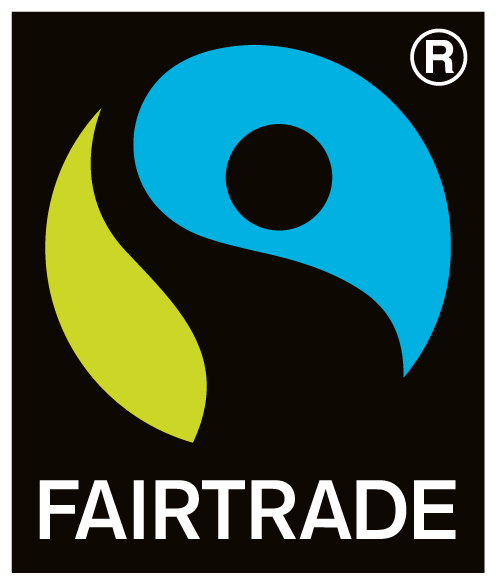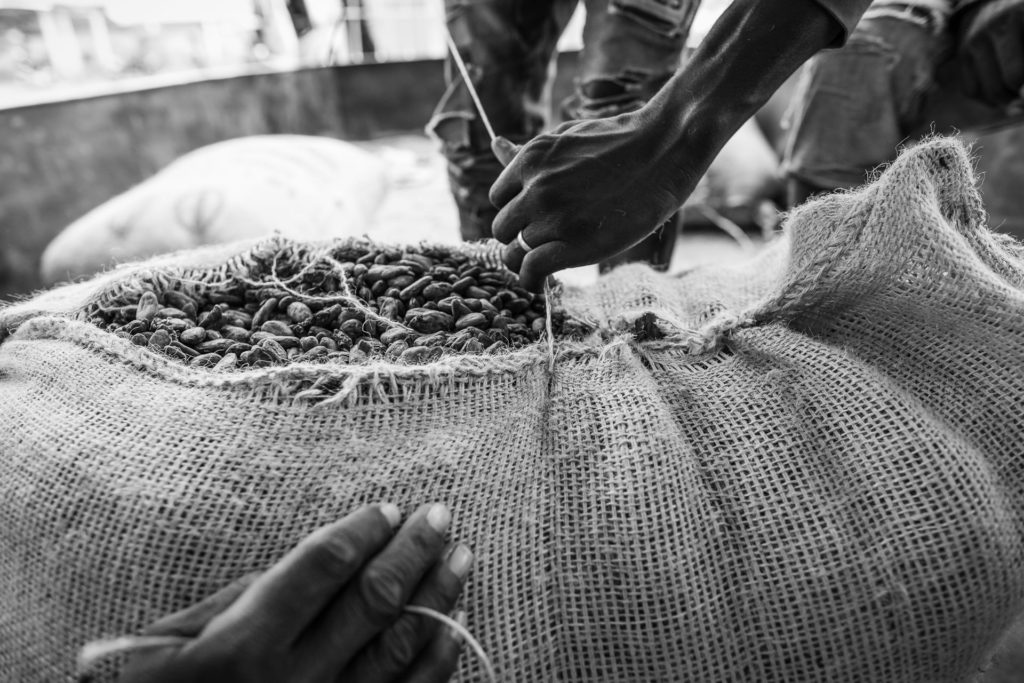After hope, fears for the future: Côte d’Ivoire’s cocoa farmers warn that a drop of 25% in the price they get for their beans means hardship ahead.
When you’re next reaching for a chocolate bar to get you through that ‘afternoon slump’, take a few minutes to check the wrapper. Does it say where and how was it produced? Does it offer the safety net of the Fairtrade Minimum Price and Fairtrade Premium which protect farmers when cocoa prices crash? It pays to be curious.
The cocoa industry is a turbulent sector, where poverty and child labour are still commonplace and a living income – enough for a decent standard of living, or £1.86 per day – is reserved for just a few farmers. For cocoa producers, it’s a constant battle dealing with the effects of adverse weather conditions brought on by climate change and volatile cocoa prices.
More than two million cocoa farmers work in Côte d’Ivoire where as much as 40% of the world’s cocoa beans are grown. In contrast to a global confectionary sector worth billions globally, many cocoa farming communities still lack basic resources like health clinics, schools or electricity, and farmers have to take whatever price they are offered for the cocoa they work hard to produce. This means that despite toiling all day, many people still don’t have enough to feed their families.
In 2020, the governments of Côte d’Ivoire and Ghana intervened and took the extraordinary step of introducing a fixed surcharge of $400-a-tonne premium for cocoa – the Living Income Differential (LID) – to help improve incomes for producers.
But in a blow that has now set back hopes of Ivorian cocoa farmers earning living incomes, it was announced on 31 March that the official cocoa price will fall from 1000 FCFA (£1.52) per kilogram to 750 CFA (£0.99) per kilogram; a drop of 25%. The reason given for the price drop is that the demand for cocoa has dropped over the last year as a result of the coronavirus crisis.
To highlight farmers’ increasing anxiety, Fortin Bley, Vice President of the Ivorian Fair Trade Network told a press conference in Côte d’Ivoire on Friday 23 April, that cocoa farmers ‘wish to express our disappointment with the current farm gate price level. We call on all actors within the value chain to commit to guaranteeing decent prices for cocoa farmers’. He also appealed to The European Commission and European governments to commit to recognising living incomes in forthcoming human rights due diligence regulation for the European cocoa and chocolate sector. (Watch a clip of the news coverage on YouTube. Please note that it is in French.)
In 2019, the Fairtrade Foundation launched an ambitious new campaign calling for our government and the chocolate industry to lead the way to a sustainable future for cocoa farmers. This came at a time when the global price for cocoa had just crashed again, pushing many farmers deeper into poverty, creating an even more urgent situation for the millions of families relying on cocoa production.

We highlighted how choosing Fairtrade chocolate with the little blue and green label on the wrapper was a critical first step – it is the most tangible action individuals in the UK can take to improve farmers’ incomes, and remains so today. Increasingly, we’re working with brands on living income programmes that mean long term investments to improve farmer incomes.
Fairtrade’s living income strategy sets out a comprehensive approach bringing together tactics such as raising productivity, farm efficiency and empowerment of women leaders in farming communities, combined with a responsible approach to price, which for Fairtrade means paying at least the Fairtrade Minimum Price safety net and Fairtrade Premium.
Many other actions must also be considered in the fight for living incomes. It is clear that governments, chocolate companies, traders, retailers, shoppers and civil society must come together if we are to achieve living incomes for cocoa farmers.
Our hope is that as countries recover from the coronavirus crisis demand for cocoa will return to pre-pandemic levels, and the price that farmers receive will increase. The economic shock the pandemic crisis has caused demonstrates just how precarious life is for cocoa farmers. It underlines the need to build a more resilient cocoa sector. Now more than ever, the UK Government and UK businesses must play their part. The Government must make living incomes a priority for UK-funded aid projects, bring in legislation that promotes human rights in global supply chains, and join an international taskforce to coordinate industry efforts towards living incomes. We call on UK businesses to play their part too, by paying higher prices for the cocoa they buy, and joining in industry efforts towards living incomes too.
To support Fairtrade cocoa farmers, please choose Fairtrade chocolate.
